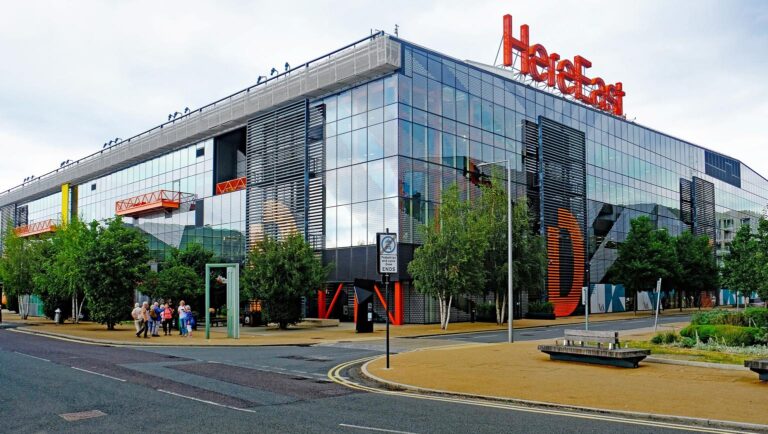
Discover the Here East Scholarship Programme
Current and former beneficiaries of this educational support initiative for East Londoners describe just what it means to them and their families
East London’s streets have been the grounds of a revival of a UK roller-skating scene and it’s been quite something to witness in real-time.
Pre-pandemic, popular exposure was limited to grainy throwbacks of roller disco footage from the 70s, or the fluorescent interiors of 80-90s roller rinks, when roller-skating was at its zenith.
In more modern times, thriving communities further afield in LA and New York have become the new cornerstones of the skating community.
But with a freshly burgeoning skate scene gliding to the forefront, a new community has etched its way onto London’s decorated paths, too, joining the likes of bikers, scooter riders, skateboarders, hover-boarders – all whilst bringing the groove back onto our streets.
James Kaguima is founder of Skate Cabal, an initiative championing people of all backgrounds to hone their skating skills, whilst simultaneously providing mental stimulation and support.
He takes us through the journey of how Londoners of varying ages and levels have found the initiative an effective outlet within the activity and in turn, contributed to establishing community.
“It started around lockdown, when Boris said that we can all have one hours’ exercise time,” says James. “People were facing a lot of mental health issues and social isolation, but were also overcoming some of those through finding spaces such as parks. During that time, a lot of people took up roller-skating to meet others, stay fit or improve their wellbeing. I saw that it was quite popular on social media, so I decided to go to my local park (the Olympic Park) where I saw other people and they welcomed me with open arms. From there, I joined the community and was invited to different meet-ups.”
A shared problem across city-based skating communities lies in limited dedicated spaces; a shortfall of purpose-built roller-skating facilities when compared to other mainstream sports and for many, inaccessibility due to limited funds for safety gear has been a deterrent, too.
“The skating community in LA didn’t have a space to go,” says James, “but they managed to fundraise and work with the LA City Council to build a dedicated roller skate plaza. I visited it and liked the idea. I think it’s a good case study that shows when you build something with the community, it can help resolve multiple issues.”
Using his background in running community sports programmes and fundraising, James decided to do something about it here in London: “I gathered research, spoke to people in the community and used that as evidence to create a proposal to pitch to Newham Council.”
He received funding to launch his first programme, Rolling for Peace. “It was all about trying to find out how sports activities, such as roller-skating, help people during the lockdown period.”
The programme launched from 2021/22, providing a safe space for roller-skaters to practice, meet fellow skaters and develop their skills during the Covid restrictions. Skate Cabal soon followed, with regular skate sessions and a Skate Jam Academy, which welcomes beginners and decorated skaters alike.
“We teach people from all types of levels the foundational skills to master class sessions. People can learn different jam routines or more advanced techniques.”
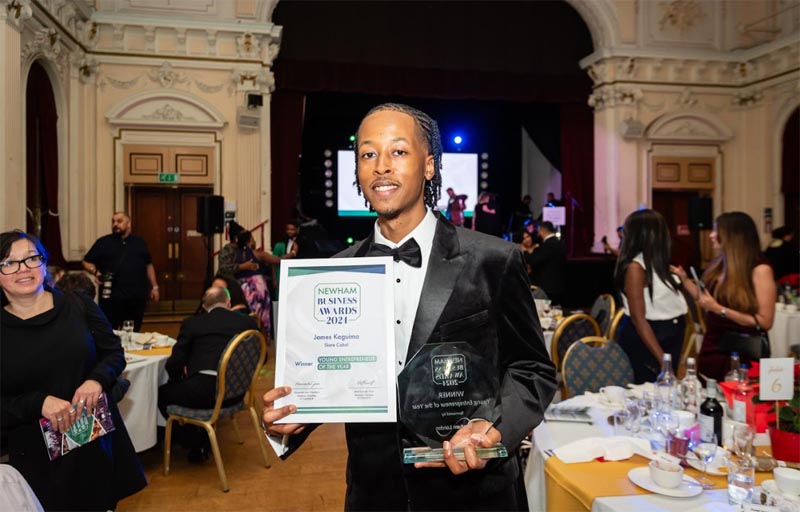
James and Skate Cabal’s work with the Queen Elizabeth Olympic Park (through their Neighbourhood Priorities Fund) involved engaging with the wider community through the delivery of their programmes. “We also work with them on the annual summer festival The Great Get Together, where we do the skate activation and provide free protective gear, helmets and skates, teaching different ages and levels, from children to the elderly,” he smiles.
The Mayor of London’s Violence Reduction Unit also funded a Skate Smart programme, to tackle youth crime by providing a safe space for young people to acquire and develop skating skills and build connections in a safe environment: “We provided free equipment for them,” says James, “which removed the barrier for them to join and learn a new skill. Now I see some of them skating around when I go to different areas!”
During his time in Law school, James faced his own adversity and feelings of social isolation, which he says helped him find value in being part of a community and having a support system: “I feel that by doing this work, I’m not only helping myself, but also solving some of the issues that are being faced by others.”
Many skaters believe purpose-built spaces, accessible throughout the year and offering shelter from the elements, supervision and access to First Aid kits would help better support the scene, allowing it to flourish.
With the lack of such spaces, some resort to practicing in car parks: “that’s not really allowed, but the Olympic Park has smooth surfaces – there are places like UCL East, where many congregate. There’s Hyde Park, Bethnal Green gardens… as long as there’s a smooth and wide space, that’s where you’ll find people who skate.”
On any given day, a walk through the Olympic Park promises unparalleled views; the towering ArcelorMittal Orbit in all its glory, stray sunbeams reflecting off London Aquatic Centre, echoing cheers from London Stadium, children and pups dancing in the fountains, bikers flitting between power-walking commuters and runners – and the recent addition of roller-skaters twirling over the concrete.
It’s a welcome reminder that any of us can have fun acquiring new skills, building our community and maintaining a low environmental impact – and it all starts with one foot in front of the other.

Current and former beneficiaries of this educational support initiative for East Londoners describe just what it means to them and their families
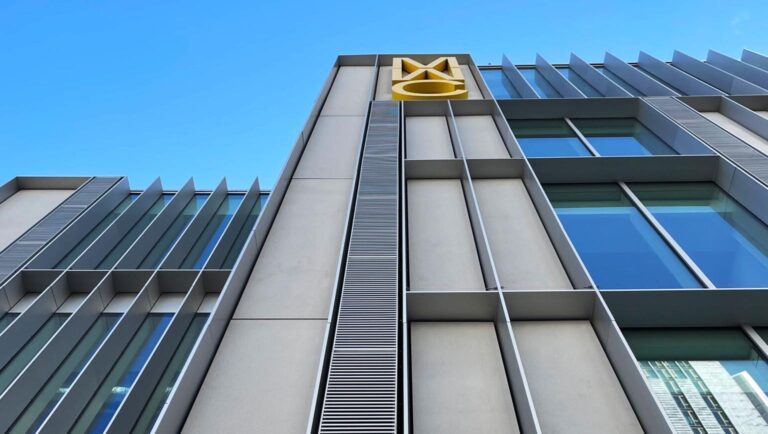
What’s it like diving into a course to learn a brand new skill at Stratford’s adult learning hub?
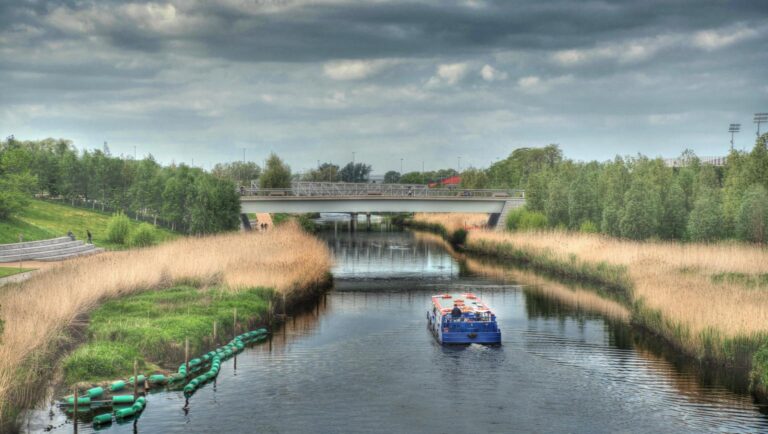
Mischaracterised as a murky footnote on the city fringes, the river has in fact inspired culture, protest and innovation for hundreds of years
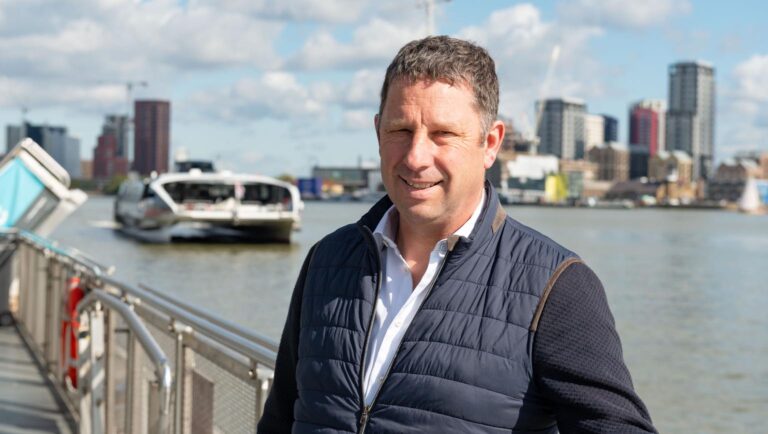
Why East London’s rivers are so special, and continue to be so over decades of change
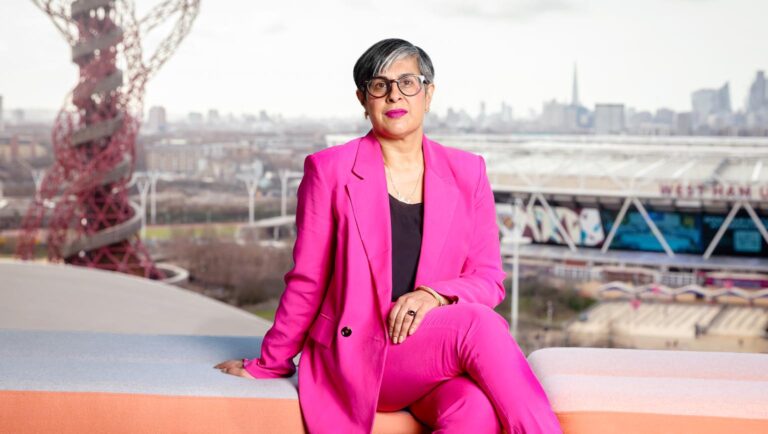
The CEO of London Legacy Development Corporation is The Wick’s latest guest editor
A 160-page hardback celebration of resilience, featuring hundreds of photos, stories and memories: 15 years of culture, community and change